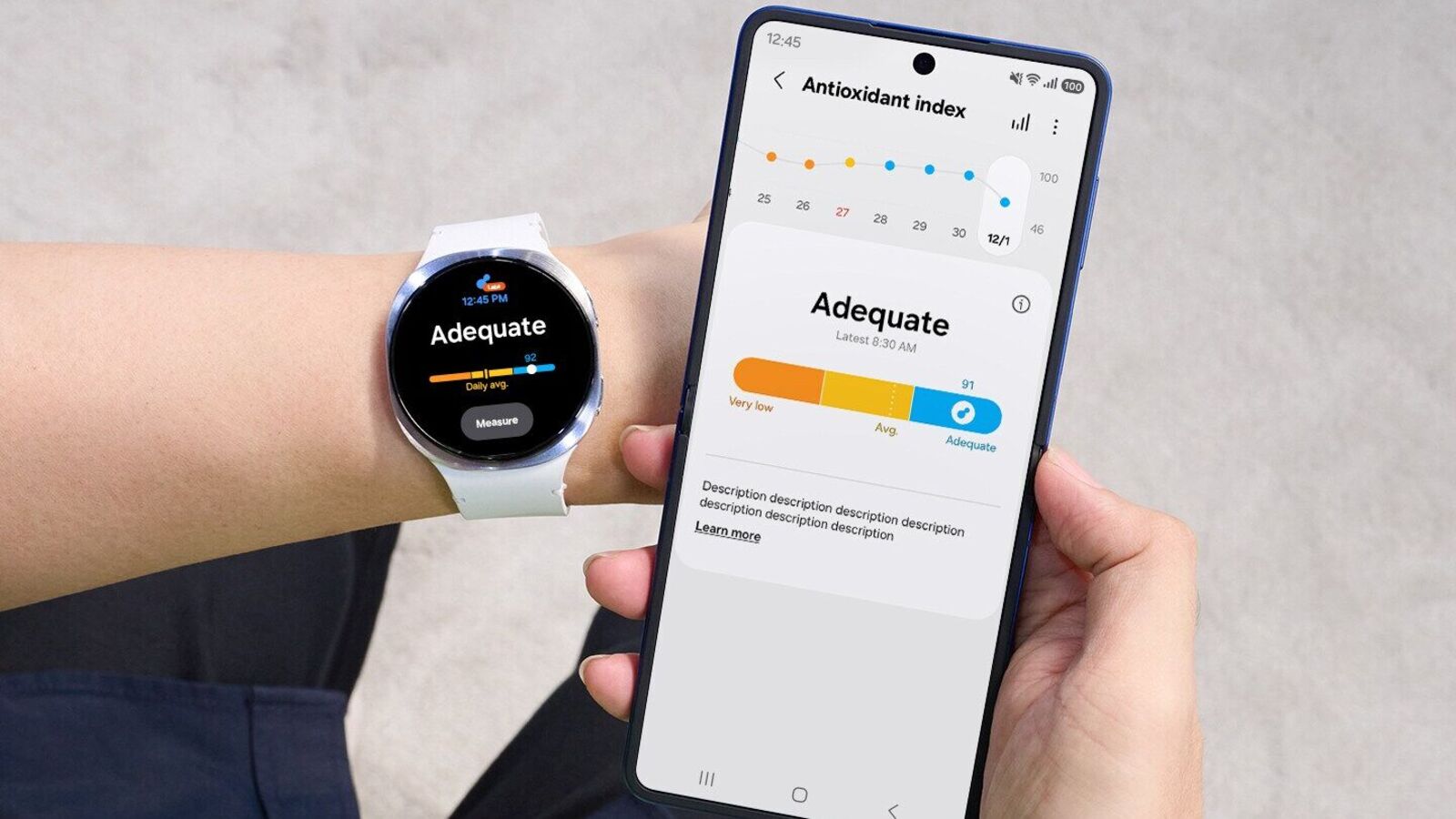Samsung has taken another leap in health innovation with the introduction of the Antioxidant Index feature for Galaxy Watch 8 users. The feature brings a unique ability to measure carotenoid levels in the body through a simple thumb scan, offering users a new perspective on their nutrition and overall wellness. According to the company, this marks the first time a smartwatch can calculate such data in just five seconds.
Developed after several years of research, the technology is based on spectroscopy, a method often used in scientific laboratories to analyse biological compounds. Samsung says the Antioxidant Index focuses on carotenoids, the natural pigments found in fruits and vegetables that serve as vital antioxidants. Since the human body cannot produce these pigments naturally, the readings can give a clear reflection of an individual’s fruit and vegetable intake, offering valuable insights into dietary habits.
How the Antioxidant Index works
Samsung explains that the Galaxy Watch 8’s sensor uses multi-wavelength LEDs and a customised photodetector array to measure how much light the skin absorbs. The data is then processed through algorithms to estimate carotenoid levels. To ensure accurate readings across different skin tones, the measurement is taken on the fingertip, where melanin levels are naturally lower.
The results are displayed as an Antioxidant Index score, which can fall into three categories — very low, low, or optimal, depending on how closely a person’s carotenoid levels align with the World Health Organization’s recommended daily intake of fruits and vegetables. Unlike other health readings that fluctuate daily, Samsung clarifies that these scores evolve gradually over one to two weeks, highlighting consistent dietary trends rather than short-term changes.
The company says the goal is to help users better understand their nutrition and encourage balanced eating habits. It also claims that the Antioxidant Index complements existing Galaxy Watch 8 health features, such as sleep monitoring, physical activity tracking, and vascular load measurement. Together, these tools offer users a comprehensive view of their overall well-being.
Scientific research and collaboration
The feature was developed in collaboration with experts from Seoul National University and Samsung Medical Center. According to Samsung, the project involved extensive clinical research to ensure accuracy and reliability in estimating carotenoid levels across diverse users. Medical researchers involved in the collaboration believe that wearable technology could play a major role in promoting healthier lifestyles by helping individuals track nutritional markers in real-time.
By integrating this scientific breakthrough into a consumer wearable, Samsung aims to make nutritional awareness more accessible. This approach not only broadens the role of smartwatches but also moves digital health tracking beyond traditional metrics like heart rate, steps, and sleep. The ability to measure antioxidants represents a meaningful advancement in how individuals can monitor their internal health using non-invasive, everyday technology.
A new direction for wearable health technology
Samsung’s innovation comes at a time when health tracking is becoming a defining factor for smartwatch users. From blood oxygen monitoring to ECG readings, wearable devices are now capable of tracking metrics that were once limited to clinical settings. The introduction of the Antioxidant Index adds yet another dimension, focusing on nutrition and preventive wellness.
The company believes that such advancements will inspire users to adopt more mindful eating habits, reinforcing the link between nutrition and overall health. By transforming the Galaxy Watch 8 into a tool that goes beyond fitness tracking, Samsung is positioning itself as a leader in the growing space of holistic health technology.
As technology continues to merge with healthcare, Samsung’s latest innovation sets a benchmark for what smartwatches can achieve. The Antioxidant Index represents not just another feature, but a meaningful step towards truly personalised health insights that can help users make smarter, healthier decisions every day.

